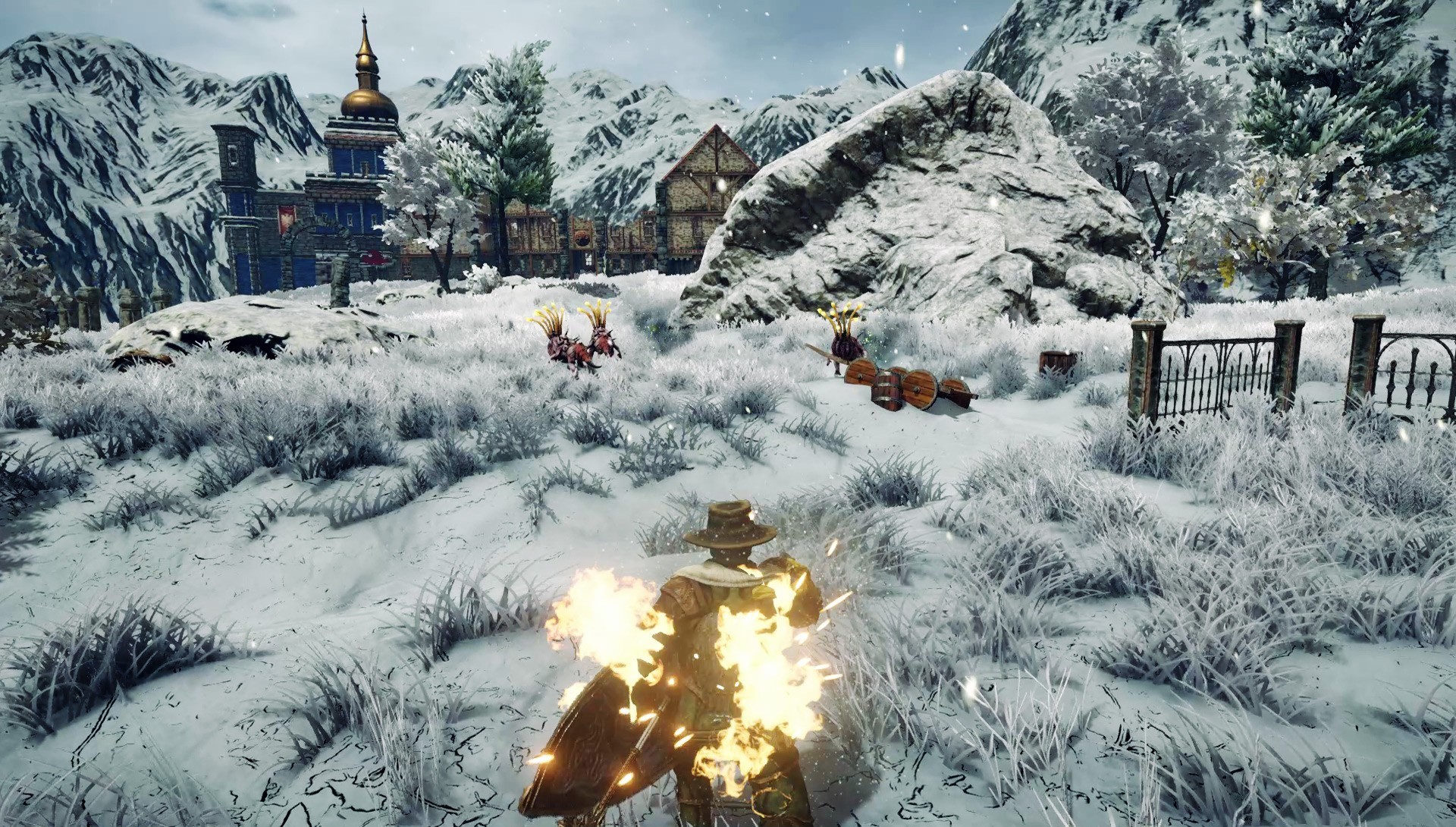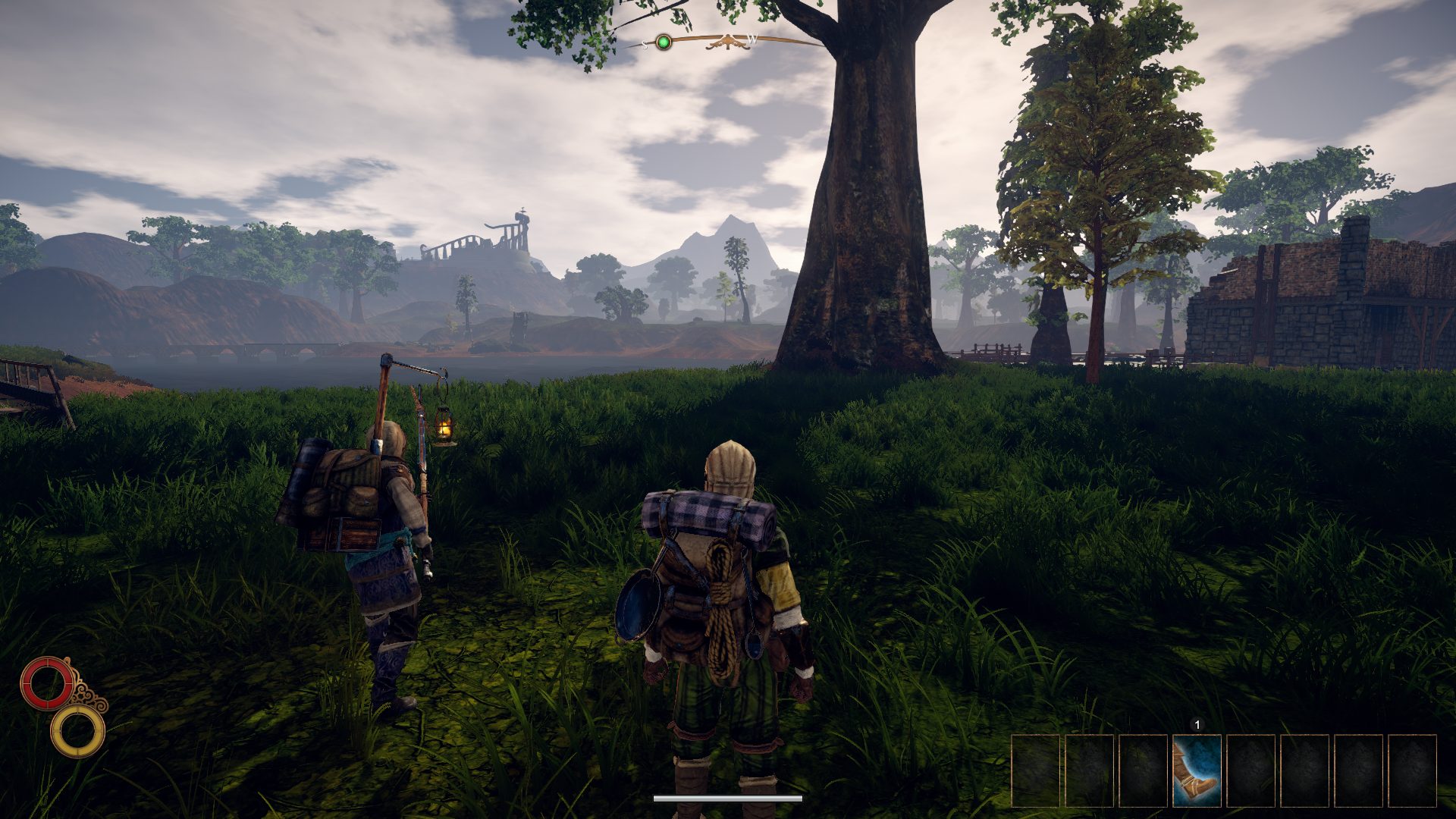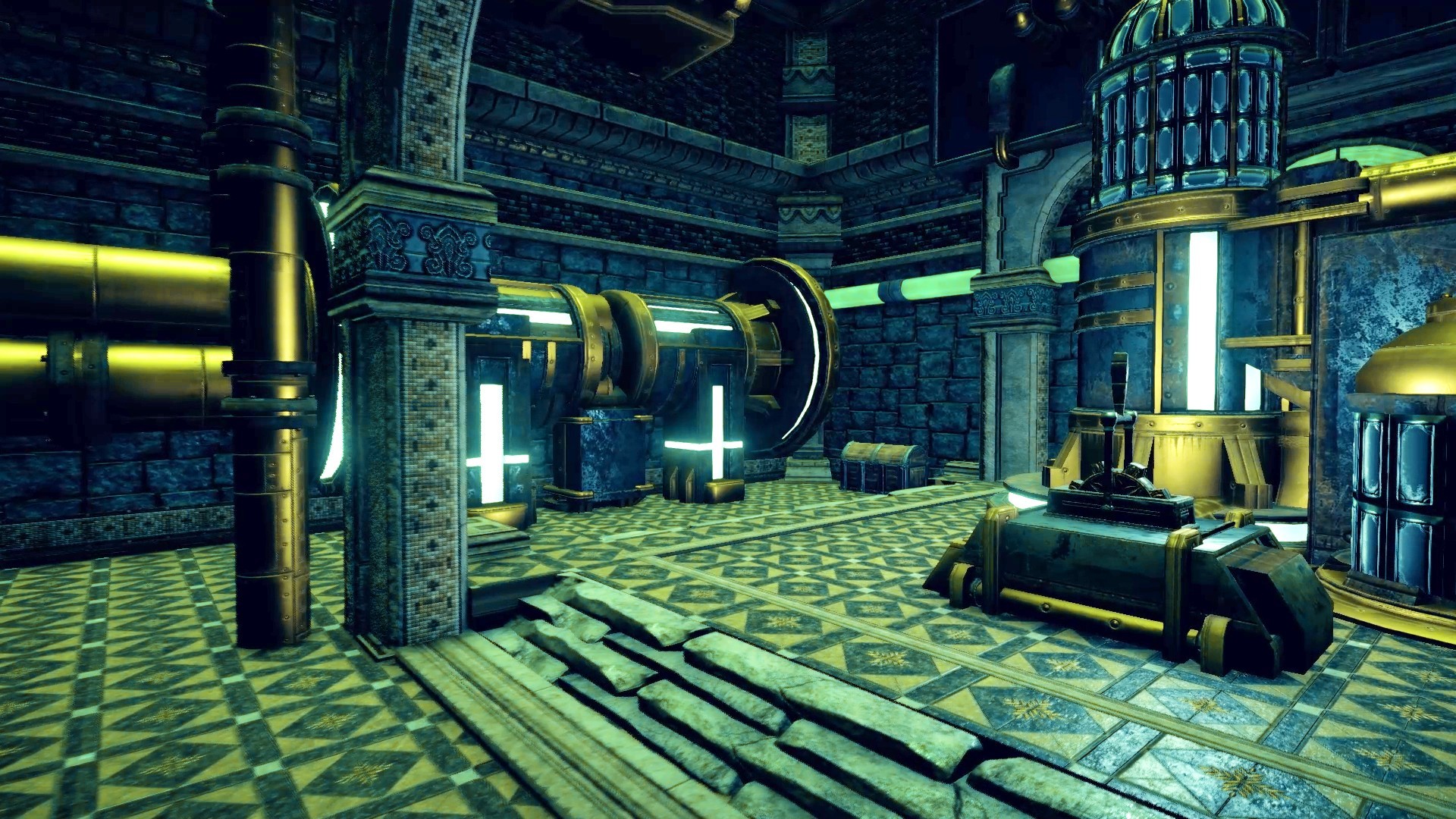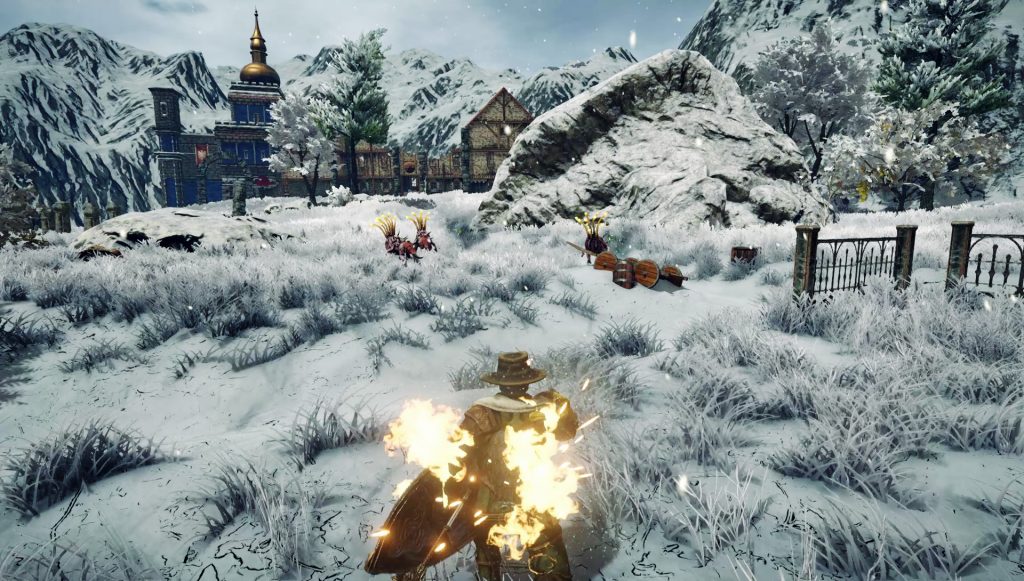There was a time when every multiplayer game that darkened the doorways of the major consoles had to have a couch element to it. Whether it was a tacked-on mode in which you and your friends battled it out in lacklustre minigames or a fully-implemented co-op campaign, before the online era games were laughed out of the room if they didn’t offer the ability for a couple of friends to really knuckle down and start ruining friendships.
Those days are sadly over now, but that doesn’t mean there aren’t games keeping the co-op flame lit. One such game is Outward, a survival RPG from Canadian studio Nine Dots and German publisher Deep Silver. Like the two companies behind its creation, Outward’s central philosophy is one of co-operation, of reaching across the recently-imposed online multiplayer divide and offering players the chance to bond once again over a video game.
That’s not entirely accurate, since Outward does offer online co-op play if you’re interested. Still, for our money, the best way to experience this one is to play it with a friend in the same room. Part of the reason for that is because many of Outward’s mechanics require communication which is much more difficult across miles of distance, and part of it is because, well, more people should be playing video games in the same room together.
Those mechanics we mentioned are front and centre of Outward. This is a hardcore survival RPG with the emphasis on “hardcore”. Outward prides itself on making players work for their survival. Spells can’t be cast until the requisite rituals have been completed. It’s possible for players to catch diseases, become sleep-deprived, or become dehydrated, and all of these will negatively impact the game world in some way. Perhaps most damningly, the game world constantly saves, forcing players to live with the consequences of their actions rather than simply looping back to a previous save.

All of this puts us in a rather tricky situation. Is it possible to criticise a game for doing exactly what it sets out to do? In the case of Outward, its survival mechanics are undeniably front and centre of the experience, but they’re not always particularly satisfying. There are times when the game is frustratingly obtuse with communicating information to players, meaning you could fall foul of a hitherto-unexplained mechanic and possibly die as a result. Similarly, combat in the game is quite clunky and tricky to navigate, and most enemies are stronger than you, which means you’re often better off simply running from encounters rather than attempting to fight.
There’s a strain of hardcore gaming running through Outward that doesn’t always work to its benefit. The most obvious comparison with many of the game’s systems would be From Software’s masterpiece Dark Souls. There’s no fast travel, no quest markers, and no manual saves. Monsters are huge, powerful, and terrifying. It’s nice that Outward wants to transmute the Souls experience into a survival RPG, but the two genres don’t mesh particularly well; Souls feels unforgiving but is actually quite lenient, allowing players to try and try again with limited consequences for failure. In contrast, Outward does punish players with hunger, thirst, and other detrimental mechanics.

We don’t want to be too down on Outward, because we did enjoy our time with it. The game’s world is vast and compelling, with a number of different biomes offering incredible vistas to gawk at. Playing with a friend pretty much cemented our love for the experience; there’s nothing quite like fighting for your life next to a friend who you’re pretty sure will soon die of hunger, desperately attempting to kill something for food before they die. It’s been said that multiplayer can smooth the edges of any experience, and that’s certainly true for Outward.
The thing is, though, there are going to be plenty of people who play this survival RPG alone, and they’re going to notice its flaws much, much more. A lack of fast-travel initially sounds like it might be refreshing – games like Skyrim allowing players to flit everywhere immediately takes all the weight out of travel – but quickly becomes tedious as you backtrack to hand in quests and revisit areas only to realise you don’t actually need to be there. Constant autosaving sounds nice, but in a game like Dark Souls it’s very difficult to back oneself into an unwinnable corner whereas in Outward there could easily arise a situation in which you simply can’t escape from a predicament and need to wind back to an older save.

There’s a chance you could be reading this and thinking Outward is absolutely the game for you. What’s more, you could be right; if you like unforgiving survival mechanics, a breathtakingly beautiful world with plenty of diverse life in it to explore, and the ability to share it all with a friend, then Outward has plenty of charms. Its flaws, though, mostly lie in its absurdly high difficulty, its adherence to the survival genre at the expense of storytelling and accessibility, and its occasional glitchiness.
In the end, we do actually find ourselves wanting to recommend Outward. It’s a bit broken, a bit buggy, and not entirely satisfying to play. That said, there is nothing like this out there right now, and the experience of playing in co-op is so immensely satisfying that it dwarfs all of Outward’s (many) problems. Play this one multiplayer, because the rose-tinted glasses don’t fit one person.
Purchase Now.
This post didnt have a specific author and was published by PS4 Home.


